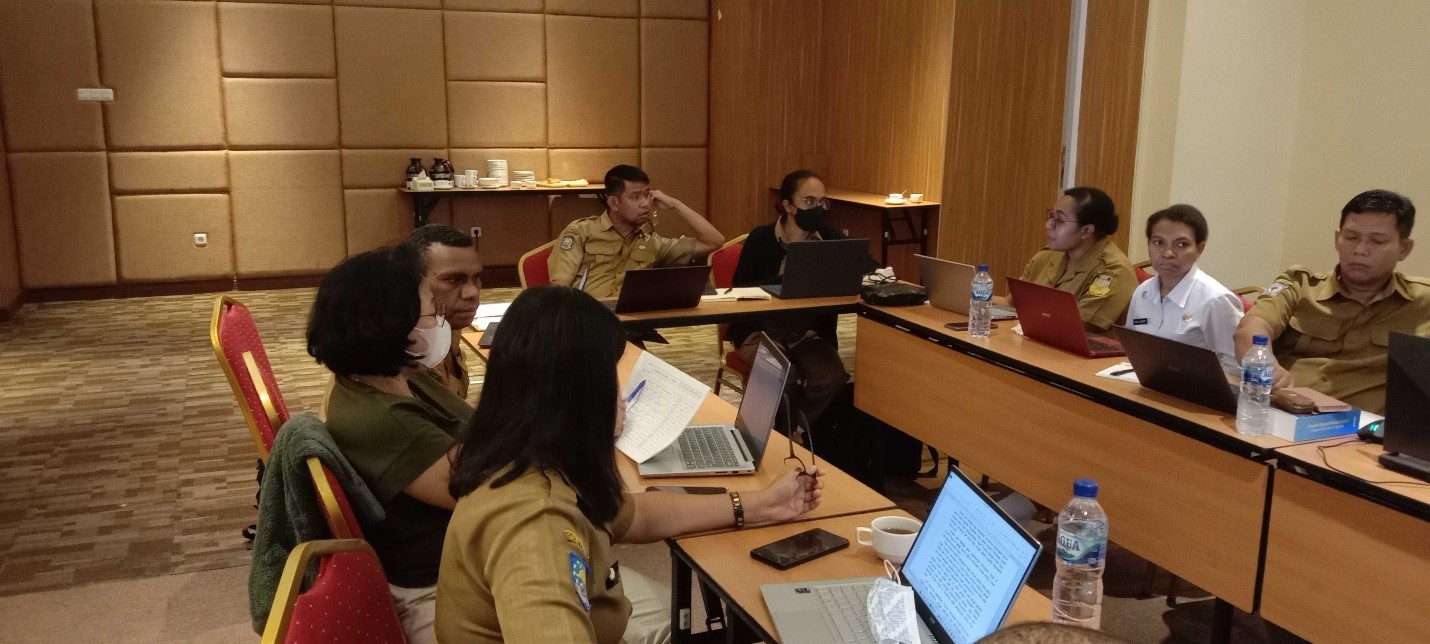It creates a financial value for forest carbon, incentivising forest protection rather than forest destruction. This is critical given the mitigation potential of REDD+ is in the realm of 5 gigatons of carbon per year, coming behind only the energy sector in terms of mitigation potential.
Indonesia released its REDD+ National Strategy in 2012, with supporting Action Plan and Business Plan following. At that time, each province was required to formulate a Strategic Regional Action Plan (SRAP) for the Reduction of Greenhouse Gases. The government has since issued Presidential Regulation No. 98/2021 on the Implementation of Carbon Economic Value to Achieve Nationally Determined Contribution Targets and Control over Greenhouse Gas Emissions in Relation to National Development, which provides the basis for REDD+ implementation at sub-national level, including SRAP preparation. Provincial SRAP documents were prepared across Indonesia in 2012-2013, but now need to be updated – presenting a prime opportunity to grow awareness and consultation.
Spatial planning and spatial data fundamentally underpin the implementation of Indonesia’s REDD+ strategy, as they help to address complex challenges like overlapping land use licences. Recognising this, our PSP team were requested by the Papuan Forestry and Environment Office (Dinas Lingkungan Hidup dan Kehutanan/DLKH) to provide technical support for the development of a new SRAP for Papua Province (the previous SRAP was developed in 2013 and is no longer relevant to current conditions). PSP is supported by the Directorate General for Regional Development (Dirjen Bangda) of the Ministry of Home Affairs and United Kingdom Foreign, Commonwealth & Development Office (FCDO), and technical assistance by the program builds on past support to the Province’s REDD+ Working Group, including facilitating extensive consultations across government, academia and development agencies and in developing Papua Province’s report on Emission Reduction.
On 20-25 July 2022, a workshop was hosted in Jayapura on the process of drafting the Papua Province SRAP. Participants included members of the Working Group Team (Pokja) including representatives from DLKH, Forest Area Designation Bureau (Balai Pemantapan Kawasan Hutan) Regional X in Jayapura, Jayapura Municipality Forest Management Unit (KPH), Keerom Regency KPH, Cendrawasih University, and other development partners. PSP experts present included Dr. Solichin Manuri, an expert in calculating and analysing carbon emissions, and Dr. Maria Ratnaningsih, as process facilitator.
Ade Ridwan, Head of Forestry Administration Division (Kepala Bidang Penatausahaan Kehutanan/PUK DLKH) gave the opening remarks, calling the Papua SRAP “the embodiment of the forest and land management action plan as a support for life and biodiversity for the benefit of the community, regional development and improving the welfare of the Papuan people”.
He called upon the cooperation of all members of the Pokja Team and development partners, to provide the necessary data and supporting planning instruments and documents, and to prepare the analysis to strengthen Papua’s SRAP.
Papua Provinces SRAP will become the core guideline and direction to implement REDD+ and access Results Based Payments to simultaneously realise emissions reductions and protect Indonesia’s important natural habitat. The workshop discussed Theories of Change to capture the problems, constraints, plans and actions associated with achieving emissions reductions in Papua’s forestry sector.
The preparation of the SRAP document has not been completed and still needs to be completed in the future. Dr. Estiko Tri Wiradyo, SH, M.Si, Chair of the REDD+ Working Group, concluded the workshop, expressing his appreciation for the PSP team’s support, and that he hoped this support would continue in the future. He especially highlighted the need for continued support to ensure the completeness of REDD+ infrastructure, including developing the Measurement, Reporting and Verification (MRV) system and safeguards information system, institutional strengthening and capacity building and continuing to identify and meet mapping and data needs.
Internationally, there is increasing recognition that REDD+ initiatives significantly impact the wellbeing of people and communities (including health, education, food and income sufficiency), especially if tied to interventions target women’s livelihoods. This underscores the importance of ongoing work to develop and implement Indonesia’s subnational SRAPs – particularly via methodologies that ensure diverse and inclusive engagement. PSPs support to REDD+ initiatives consolidates the value of spatial planning improvements in provinces like Papua.

